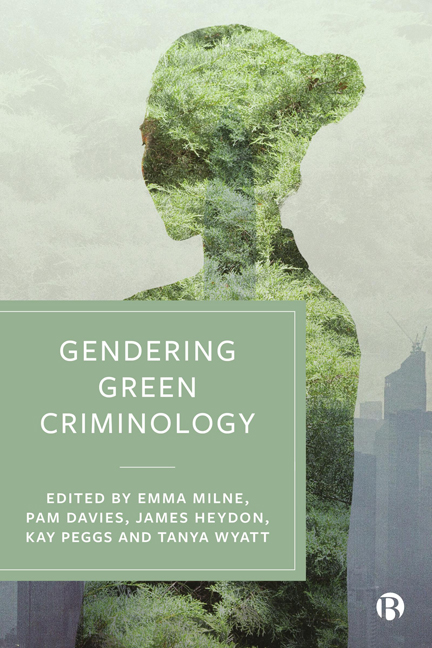13 - Vegan Feminism Then and Now: Women’s Resistance to Legalised Speciesism across Three Waves of Activism
Published online by Cambridge University Press: 28 March 2024
Summary
Introduction
There is an implicit deviance in women's activism, exemplified in the popular adage: ‘Well-behaved women seldom make history’ (Ulrich, 2007). This is certainly the case in anti-speciesism work beginning in late-18th and early 19th-century Britain and Europe. Advocacy on behalf of other animals was stealthily adopted by women who played on gender stereotypes such as ‘angels of the home’ and ‘nature's caretakers’ in order to enter the patriarchal public sphere and resist anthroparchal oppression (Unger, 2012). Originally, these campaigns focused on especially male pursuits, such as ‘hunting’ (a euphemism for male violence against other animals) and vivisection. Women's contributions to campaigns, funding and public support were invaluable to early efforts. Yet, as was typical of the time, women were also frequently prevented from leadership positions due to Victorian mores and concerns that the cause might face delegitimisation via feminisation (a fear that persists today) (Groves, 2001).
A small but significant body of research has documented the efforts of women in the nonhuman animal rights movement as founders of leading charities, authors of seminal texts, and community organising and education (Ferguson, 1998; Kean, 1998; Gaarder, 2011; Donald, 2020), but this chapter is interested in the extra-institutional ingenuity of women who eschewed prevailing laws, tactfully adopted the deviant mantle, and advanced anti-speciesist practice and theory through their actions. To achieve this, we highlight the efforts of one notable woman in each of the three waves of Western anti-speciesist activism. Charlotte Despard is offered as a representative of the first wave. This initial wave transpired over the Victorian and early Edwardian eras, emphasising humane education and challenging vivisection head on. Next, Patty Mark is chosen as a representative of the second wave which rose in the mid-20th century, inspired by goals and strategies of the civil rights movement and characterised by increased attention to ‘farmed’ animal welfare. Lastly, we examine Sarah Kistle as a representative of the current wave of nonhuman animal rights activism. This third wave is distinguished by a commitment to veganism, conscious attention to intersectionality, and access to new social media technologies. These three women are not only interesting in their explicit challenge to the legal system to advance nonhuman animal interests; they also demonstrate the deeply entangled nature of oppression in their resistance to speciesist subjugation through explicitly gendered (and sometimes racialised) lenses.
- Type
- Chapter
- Information
- Gendering Green Criminology , pp. 251 - 266Publisher: Bristol University PressPrint publication year: 2023



